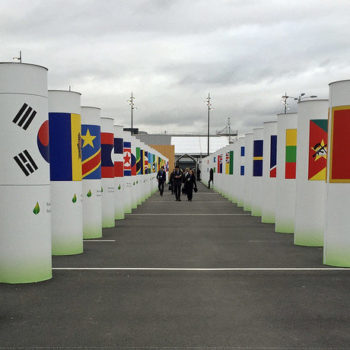The Heat and Buildings Strategy will set out the Government’s approach to decarbonising buildings – which make up almost a quarter of the UK’s contribution to climate change. To date, homes and buildings are the most significant policy and investment gap in the Government’s approach to net zero.
The strategy, which has been repeatedly delayed, is expected ahead of the Spending Review on 27 October and COP26 summit in Glasgow in November. This is a critical opportunity for the Government to show that its commitment to net zero will amount to action and delivery as well as ambition, with the world watching.
Key issues
- The Heat and Buildings Strategy must act as the framework for decarbonising our homes: setting out the timelines, regulations, incentives and support needed for households and supply chains to get on track for boosting energy efficiency and reducing emissions from heat. Currently, around 85% of our homes are heated using fossil gas, and the UK has among the coldest and leakiest housing in Europe. The Heat and Buildings Strategy is the opportunity to turn this around to enable families to benefit from warmer homes and lower fuel bills.
- The Heat and Buildings Strategy could mark an important step but will only succeed with sufficient public investment – designed in a way to leverage private finance and lower prices for all. The Treasury can use the upcoming Spending Review to deliver on the Conservative’s manifesto promises and provide more support for the millions of households without any support to improve the energy efficiency of their homes. This would create 190,000 good jobs, save £7.5bn on energy bills every year, and leverage billions of pounds of private investment to stimulate the economy.
- Phasing out fossil-fuel gas boilers is essential if the UK is to meet its climate targets. This can be done through natural boiler replacement cycles, with people swapping old boilers for new, clean heat pumps. The Government’s independent advisors, the Climate Change Committee, recommended a regulatory end-date no later than 2033, and recent polling has shown that 59% of the British public support a phase-out date of 2030. 2035 is the latest date that is compatible with meeting the 2050 net zero target, as gas boilers have an expected lifespan of 15 years. As we have seen with similar timelines to end the sale of new petrol and diesel cars, clear regulatory policy can effectively drive private sector action and bring down costs as the market for greener alternatives grows.
- Grant funding to support people switching to heat pumps is important to lower the upfront costs to households. In combination with other regulatory signals and market incentives, grant support will scale the market for heat pumps and bring down technology and installation costs, meaning grant funding can be tapered as the market becomes self-sustaining. Reaching economies of scale will be dependent on early Government support to boost demand. Grant funding should also be made available to for energy efficiency measures to lower bills and gas demand.
- The EEIG has calculated that £7bn investment in energy efficiency – including £3.35bn committed in the 2019 Conservative manifesto but not yet announced – and £4.76bn for heat pumps is needed at this Spending Review to meet the CCC’s 6th carbon budget.
- Electricity is artificially expensive because eco-levies are put on electricity bills, rather than fossil gas – despite this being the higher carbon fuel. It would be right for the Government to seek to rebalance the economics of heat to no longer favour fossil gas, which produces more emissions than electricity now that our grid is rapidly becoming greener. Any changes must be implemented in a way which ensures full support and protection for fuel poor and vulnerable households, with no increase on bills overall.
- Prioritising heat pumps over hydrogen for heating: Hydrogen for heating is full of risks. It would be at least two to three times as expensive as heat from a heat pump and is not net zero compatible if using fossil-fuel derived blue hydrogen. It is important that the Heat and Buildings Strategy prioritises heat pumps for home heating, does not mandate hydrogen ready boilers (the vast majority of which would be highly unlikely to ever be connected to a secure green hydrogen supply) and does not announce plans or levies to blend hydrogen into the gas network. Green hydrogen should be reserved for industrial sectors where it is really needed.
The benefits of decarbonising our homes and buildings go beyond climate change
- Levelling up by investing in infrastructure, innovation and people: a long-term programme to get all homes to at least EPC C by 2030 would reduce household energy expenditure by at least £7.5bn per year. New E3G analysis shows that households living in homes rated EPC D or worse could save £511 per year by upgrading to EPC C, once the predicted April energy price cap rise comes into force. This would have the biggest impact in regions most affected by unemployment, under-investment and fuel poverty, with disproportionately inefficient housing and high energy bills, thereby reducing north-south and rural-urban disparities in infrastructure, opportunity and living costs.
- Stronger recovery by prioritising jobs and skills: A sustained investment package would support 190,000 jobs to 2030 in energy efficiency and heat across a range of trades, upskilling the workforce to meet the net-zero challenge. Underpinned by public investment, the number of net additional jobs created in the wider economy beyond the end of the programme – especially in local retail and services, induced by increased consumer spending – is easily in excess of 100,000.
- Improving public service outcomes, including from the NHS: Avoidable pressures placed on the NHS by fuel poverty and cold, unhealthy homes could be consigned to the past, potentially preventing 10,000 excess winter deaths every year and saving the NHS £1.4 to £2bn annually.
Quotes on The Heat and Buildings Strategy
Ed Matthew, Campaigns Director at E3G said:
“Emissions from homes have flat-lined for the last 7 years following the removal of funding. The Heat & Buildings Strategy marks an important step forward, and now must be supercharged through the Spending Review to support households and supply chains get on track for greener homes. This investment would not just slash emissions, it can create thousands of jobs and bring down energy bills. It is the single most important action the Government can take to build back better.”
Juliet Phillips, Senior Policy Advisor at E3G said:
Tackling the emissions produced by our homes and buildings, which represent nearly a quarter of the UK’s contribution to climate change, is essential to meeting our net zero target – and also mission-critical for the levelling up agenda. We therefore welcome the Government’s intentions to accelerate the decarbonisation of the UK’s built environment.
It is now up to the Treasury to back this plan with a comprehensive investment package. A nationwide green homes infrastructure programme could create 190,000 green jobs and save households an average over £500 per year on their energy bills. By acting now, the government can help build a substantial green industry, lower the costs of the clean heat transition for everyone, and put us on track for net zero in the next decades with minimal disruption and minimised costs.
Available for comment
E3G is available for commentary – please contact directly:
Juliet Phillips: +44 (0) 7443503328 juliet.phillips@e3g.org
Ed Matthew: +44 (0) 7827 157906 ed.matthew@e3g.org
Colm Britchfield: +44 (0) 7542 865 564 colm.britchfield@e3g.org
ENDS
Notes to Editors
- E3G is an independent climate change think tank accelerating the transition to a climate safe world. E3G specialises in climate diplomacy, climate risk, energy policy and climate finance.
- In 2018, for the third year running, E3G was ranked the fifth most globally influential environmental think tank by the Global Go To Think Tank Index.
- To receive updates and analysis from COP26 via E3G’s daily media WhatsApp broadcast, register here.


